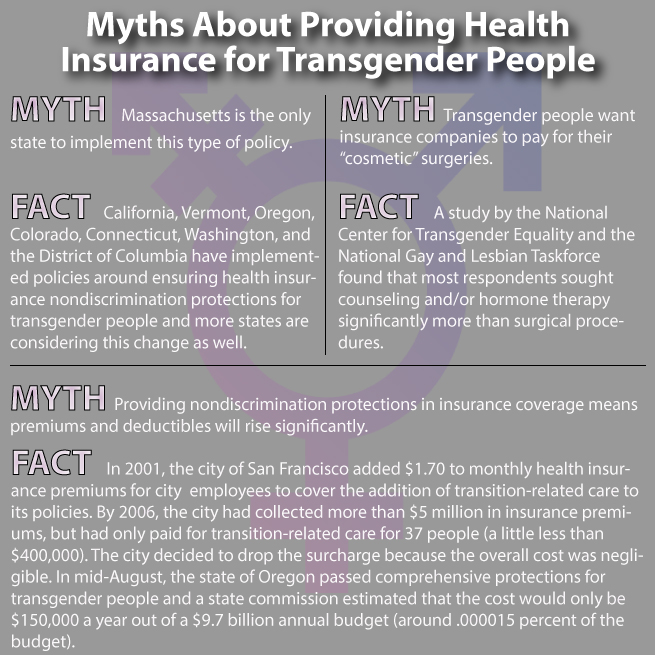
Over the summer, the Commonwealth made exciting progress in the movement for transgender equality in healthcare.
The Division of Insurance released a bulletin on June 20 and issued regulatory guidance stating that insurance plans may not discriminate against transition-related care for transgender consumers. Additionally, on the same day, MassHealth, the state subsidized health insurance plan, announced that it would begin to cover transition-related care. Both of these announcements mark amazing progress and were a welcome bit of information for the tens of thousands of transgender residents of the Commonwealth.
However, work still remains in the movement for full equality in healthcare for transgender people living and working in the Commonwealth. Thousands of transgender people across Massachusetts continue to have transition-related care denied by their private insurers and through the Group Insurance Commission
The Division of Insurance bulletin specifically applies to all fully-insured health plans in the Commonwealth and excludes self-insured plans and the Group Insurance Commission which insures many municipal and state employees. Self-insured, or self-funded, insurance plans are group plans in which employers (typically large companies and groups) take the responsibility of paying for employees’ and dependents’ medical claims. In Massachusetts, over 90 large employers utilize self-funded insurance plans, including Raytheon, FedEx, Costco Wholesale, and many more. Please click here for a full listing of self-insured employers.
Though the DOI bulletin does not require them to do so, we have seen some self-insured companies choose to provide coverage for their employees because it makes fiscal sense for their bottom line. For example, Raytheon, one of the largest employers in Massachusetts, is a self-insured company that does provide coverage, including surgical procedures and hormone therapy. In fact, 38 private-sector companies provide transition-related care to their employees, according to the Human Right’s Campaigns Corporate Equality Index, and we would urge all others to do so as well.
While we are gratified by the important progress made by the Division of Insurance and the Office of Medicaid, we acknowledge that there is more work to be done in the area of self-insured plans as well as with the Group Insurance Commission. The Massachusetts Transgender Political Coalition, MassEquality, and our allies will continue to work together with the state to ensure that transgender residents have access to inclusive and vital health care coverage.
Carly Burton is the deputy director of MassEquality and a public policy advocate. She received the 2010 Hubie Jones Urban Service Award.
Mason Dunn is the executive director for the Massachusetts Transgender Political Coalition (MTPC). Prior to his work with MTPC, Mason was on the Steering Committee for Transgender New Hampshire (TG-NH), and a legal fellow with the New Hampshire Civil Liberties Union.








